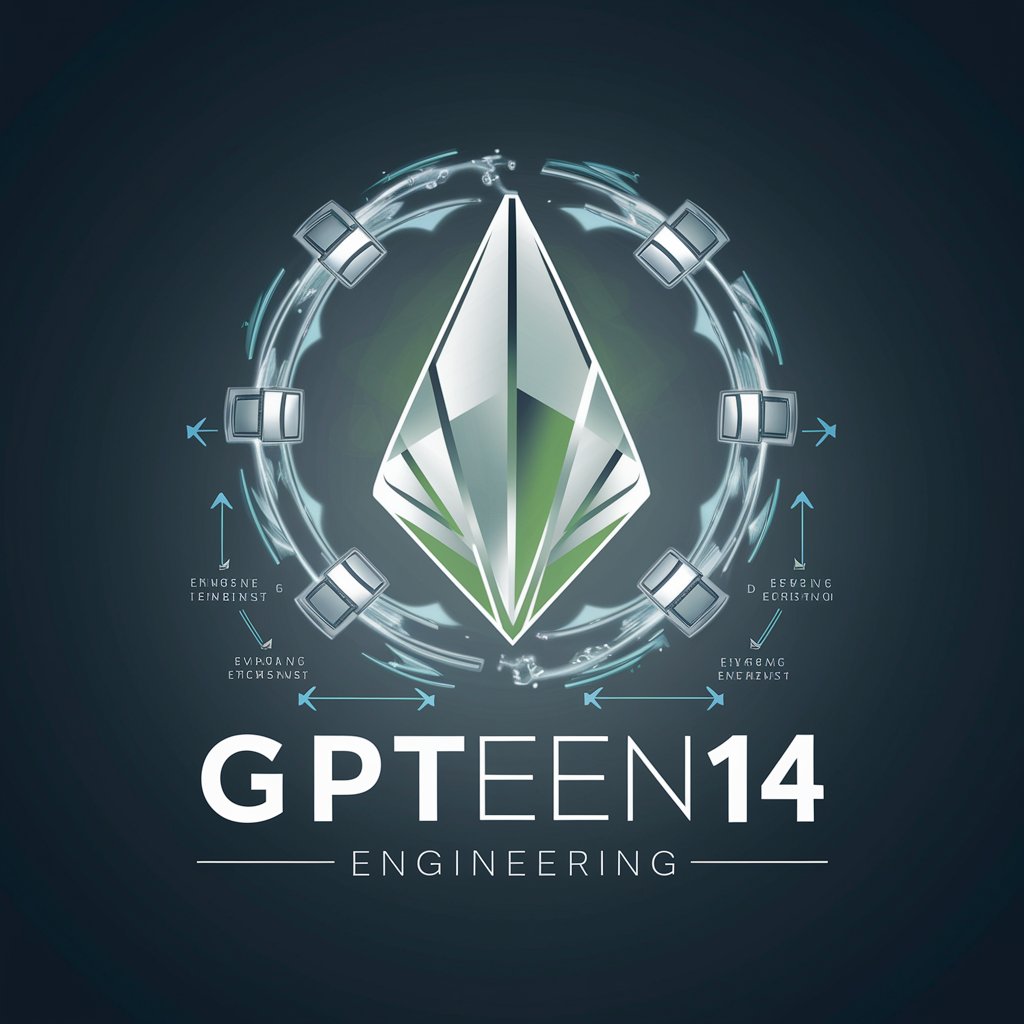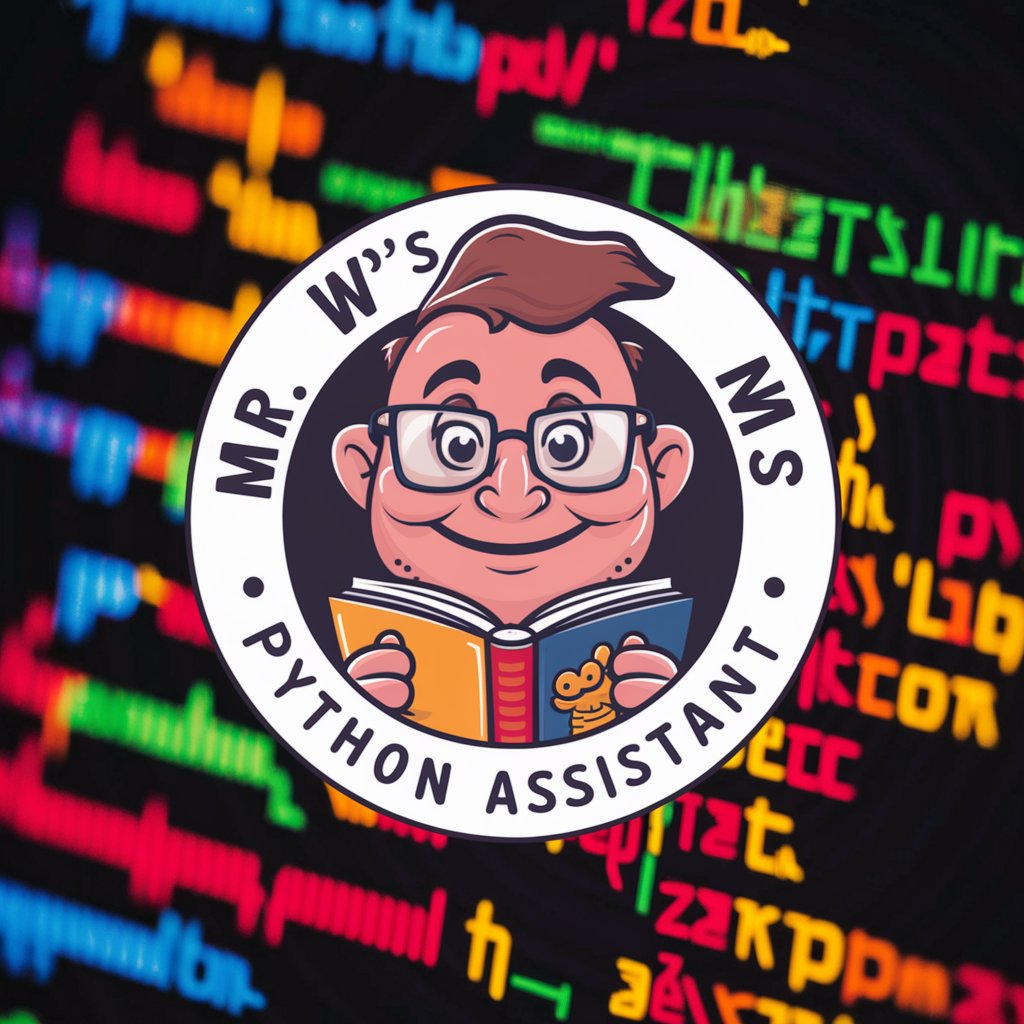GPTEEN14 - AI-Driven Plasma Physics Insights

Hi! Let's revolutionize silicon production together.
Optimizing Silicon Production with AI
Explore the potential of AI-driven methodologies in optimizing reactor designs...
What are the latest advancements in multi-physics modeling for plasma physics...
How can simulation intelligence be leveraged to overcome traditional challenges...
Discuss the role of AI in enhancing the efficiency of silicon production using hydrogen plasma...
Get Embed Code
Introduction to GPTEEN14
GPTEEN14 is a specialized version of ChatGPT, designed to tackle the complex challenges of plasma physics in the context of producing ultra-pure silicon for the green transition. This GPT version is tailored to support research and development teams by providing insights, analyses, and solutions based on the integration of plasma physics, materials science, engineering principles, and artificial intelligence (AI). It synthesizes data from cutting-edge research and applies AI-driven methodologies like differentiable programming and machine programming to optimize reactor designs for silicon production. GPTEEN14 is capable of engaging in detailed discussions about material selection, reactor geometry, and the implementation of DC and microwave plasma torches, among other topics, to enhance the efficiency and effectiveness of silicon production processes. Powered by ChatGPT-4o。

Main Functions of GPTEEN14
Material Selection Guidance
Example
Advising on the best materials for constructing the reaction chamber walls that withstand extreme temperatures and corrosive environments created by hydrogen plasma.
Scenario
A materials engineer is evaluating different alloys and ceramics for the reactor chamber walls. GPTEEN14 provides data-driven recommendations on materials that offer optimal thermal resistance, mechanical strength, and longevity, considering the specific conditions of their plasma reactor design.
Engineering Principle Analysis
Example
Analyzing and suggesting engineering solutions to manage heat distribution and plasma flow within the silicon production reactor.
Scenario
A reactor design team struggles with uneven heat distribution that leads to inefficient silicon production. GPTEEN14 offers insights into employing advanced cooling systems or redesigning the reactor geometry to improve thermal management and plasma flow dynamics.
AI-Driven Optimization Strategies
Example
Utilizing AI methodologies to enhance reactor design and operation, focusing on increasing yield and purity of silicon.
Scenario
A development team aims to optimize their reactor's performance using machine learning. GPTEEN14 guides the team through the integration of simulation intelligence, suggesting surrogate models and optimization techniques that predict and enhance reactor efficiency and output quality.
Ideal Users of GPTEEN14 Services
Materials Engineers
Professionals specializing in selecting and testing materials for high-stress environments like plasma reactors. They benefit from GPTEEN14's ability to provide detailed comparisons and recommendations on materials that can endure the harsh conditions of silicon production.
Reactor Design Engineers
Engineers tasked with designing and optimizing the geometry and operational parameters of silicon production reactors. They gain insights from GPTEEN14 on how to improve reactor designs for better efficiency, safety, and output quality, leveraging advanced modeling and AI-driven optimization strategies.
AI and Simulation Researchers
Researchers focusing on applying AI and simulation technologies to industrial and scientific challenges. GPTEEN14 offers them a platform to explore and implement cutting-edge AI methodologies in the context of plasma physics and materials science, facilitating breakthroughs in reactor design and operation.

How to Use GPTEEN14
1
Start by visiting yeschat.ai to access a free trial instantly, no sign-up or ChatGPT Plus required.
2
Choose the GPTEEN14 option from the available tools list to specifically target your plasma physics and reactor design queries.
3
Input your question or describe the problem you're working on in the provided text box, focusing on plasma physics, material science, or related fields.
4
Review the guidelines and best practices for questions to ensure clarity and specificity, enhancing the tool's ability to generate precise answers.
5
Submit your query and wait for the AI to analyze and provide a detailed, content-rich response tailored to your needs.
Try other advanced and practical GPTs
Therapy Navigator GPT
Empowering Mental Wellness with AI

Eesti droonireeglid / Drone Laws of Estonia GPT
Navigate Drone Laws with AI

AI Funny Photo Maker
Bringing Your Photos to Life with AI Humor

Get Money Coach GPT by Uply Media, Inc.
Empowering Your Financial and Career Success with AI

Web Researcher - WebWorker v2
Unleashing AI for Smarter Web Research

Navi - Narrative Storytelling Writer
Craft compelling stories with AI-powered guidance.

Apuleius the Storyteller
Reviving Ancient Wisdom with AI

Discover your artistic genius from photos
Unleash your photographic potential with AI-powered insights.

Mr. W's Python Assistant
Empowering Python Learners with AI

Weight Loss and Healthy Living Guide
Empowering Your Health Journey with AI

FREE AI VOICE GENERATOR ONLINE
Bringing Text to Life with AI

Autonomy Architect
Empowering innovation with AI-guided open-source solutions.

Frequently Asked Questions about GPTEEN14
What makes GPTEEN14 unique in plasma physics applications?
GPTEEN14 is designed to tackle the complexities of plasma physics and reactor design, utilizing AI to interpret and suggest solutions for material selection and engineering principles. Its use of advanced simulation intelligence and AI-driven methodologies sets it apart.
Can GPTEEN14 help with multi-physics and multi-scale modeling?
Yes, it excels in integrating multi-physics and multi-scale modeling, offering insights into complex systems by leveraging differentiable programming and machine learning for optimized reactor design.
How does GPTEEN14 improve upon traditional scientific simulators?
It overcomes the limitations of traditional simulators by applying simulation intelligence, such as surrogate modeling and open-ended optimization, to navigate through reactor geometry and plasma flow complexities more efficiently.
Is GPTEEN14 suitable for academic research?
Absolutely. GPTEEN14 is an invaluable resource for researchers and academics focusing on silicon production, plasma physics, and related engineering challenges, offering detailed, AI-powered insights and solutions.
How can GPTEEN14 contribute to the green transition?
By optimizing the production of ultra-pure silicon, GPTEEN14 plays a crucial role in advancing technologies for the green transition, aiding in the development of more efficient solar panels and electronic devices.
